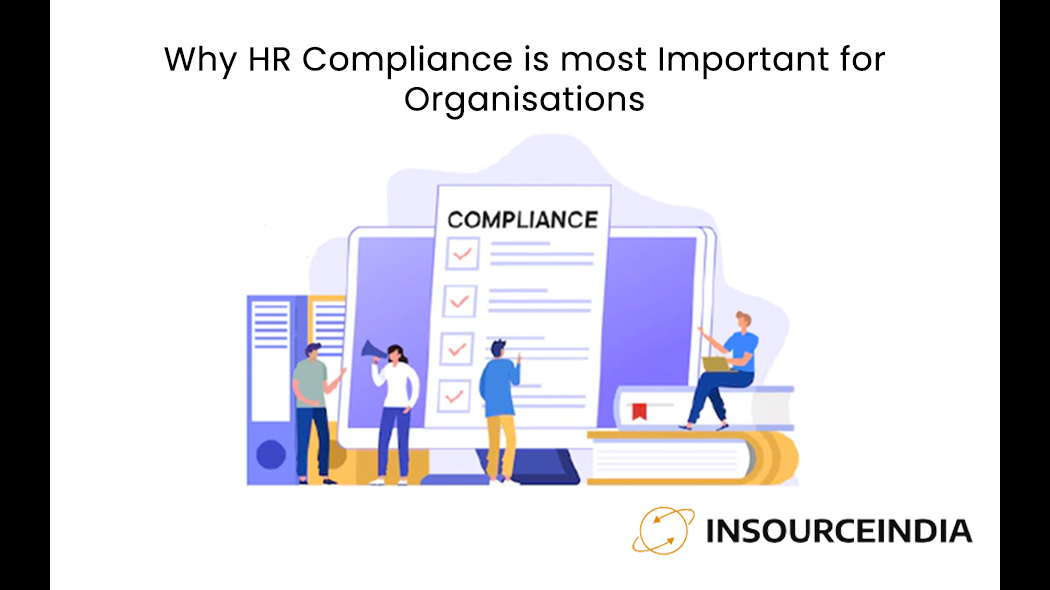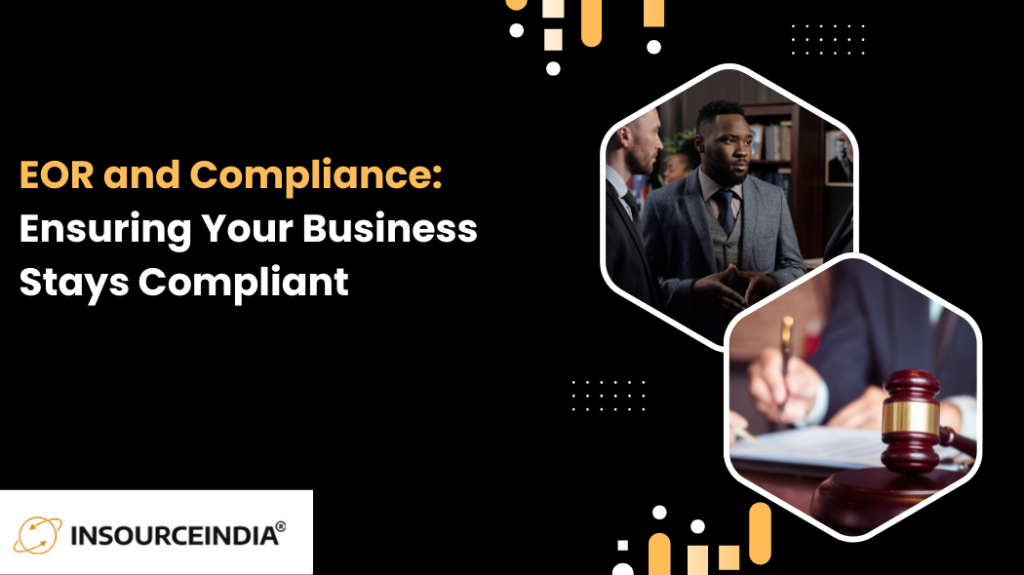Human Resources (HR) as a function is at the centre of most organisation’s efforts to source, identify, hire, and retain the people that the organization needs to execute its strategies & achieve its goals. But the HR function is a key player within the organization’s compliance structure as well. When it comes to HR compliance, it’s easy to misunderstand exactly what it means.
HR compliance is ensuring your business follows & adheres to the working standards set out by employment law. This also covers aligning the policies of a workplace with regulations & laws that operate in that country, region, state, or city.
This not only includes the creation of policies & procedures but also the implementation of protocols – making sure employees understand & adhere to the guidelines. There are various laws, regulations and Employment Acts that govern the employment relationship & HR professionals must understand and navigate to help ensure their organizations avoid costly fines or penalties, including the potential harm to the organization’s reputation.
So why HR compliance is most important for organisations?
1. To stay compliant with laws and regulations:
There are 3 different types of compliance within HR: Statutory, Regulatory & Contractual.
 Statutory: Statutory means “related to statutes,” in other words, Rules & Regulations imposed to follow as per the government & compliance stands for adherence. Thus, Statutory compliance means “To Follow rules & regulations”. Statutory compliance is a legal framework under which the company must function all its duties. Every organization must treat its employees to follow all central & state labour laws. Failing to create and adhere to the policy and being non-compliant with the respective statutory departments could result in criminal charges and the company may even have to wind up.
Statutory: Statutory means “related to statutes,” in other words, Rules & Regulations imposed to follow as per the government & compliance stands for adherence. Thus, Statutory compliance means “To Follow rules & regulations”. Statutory compliance is a legal framework under which the company must function all its duties. Every organization must treat its employees to follow all central & state labour laws. Failing to create and adhere to the policy and being non-compliant with the respective statutory departments could result in criminal charges and the company may even have to wind up.
Regulatory compliance: Regulatory compliance refers to when a regulating body issues a legal obligation. Once an Indian or Foreign investor sets-up a business in India, whether a liaison office, project office, branch, or subsidiary company, that business needs to comply with Indian regulations. It involves an organization’s adherence to local laws, regulations, rules, and specifications relevant to its business processes. It is regulated in a broad set of areas of monitoring & implementation processes. These processes can become complex and tedious depending on the type of industry and its working.
Contractual compliance: Contractual compliance refers to an agreement made by a contract (ideally an employment contract) between a business & an employee generally referred as Contractor. Both parties must maintain the terms they’ve agreed to – otherwise this could result in legal issues and violation charges by the Government to either of the two parties. The Contract Labour Act, 1970 is crucial here.
According to an article published in Reserve Bank of India’s monthly bulletin for January 2022, India has attracted higher FDI’s & continues to remain among the top attractive destinations for international investors.
2. It’s all about Core Values & Business ethics

As a business It is very important to make sure that Integrity, Respect & Ethics should not be comprised under any circumstances. In an Organisation it is expected by the employee to work with integrity, ethics, trust, and work unitedly to prevent any crisis.
There may be challenges in working from home, such as maintaining a sense of teamwork, honestly in clocking work timing, dutifully working on time.
HR may need to ensure regulatory compliance along with the well-being of the employees. A compliant HR team can bring out the best of Work environment and help maintain a well-oiled and productive team in the organisation.
3. Health & Safety of the employees in the Organisation
Ensuring workplace safety requirements as defined by the safety consultants & Government bodies keeping up with the various worker safety regulation is very important. There needs to be proper measures in place to protect the health & safety of people working in the company.HR & Team Managers are responsible for promoting workplace safety in the organisation. They need to look at every standard that is laid down by the local authorities and stick to strict safety guidelines. Training on emergency situations such as Fire & Evacuation must be conducted by HR team.
 There are many ways where the organisation can improve & safeguard the employees and the company assets:
There are many ways where the organisation can improve & safeguard the employees and the company assets:
- Identify & Familiarize workplace Hazards
- Implement Workplace Safety Programs, Training & have Safety Equipment
- Report Unsafe Working Conditions
- Reduce Workplace Stress
- Promote Regular Breaks
- Secure the workplace
4. Data Security & Privacy in the Organisation & GDPR Rules

As an HR professional, you and your organisation would work daily with sensitive, highly confidential employee & business data. Data Security and GDPR do not only apply to clients & consumers anymore, but they govern employee data as well. HR must get permission to use employee data, be transparent about how it’s used, and have access control systems in place should employees withdraw permission.HR compliance can be maintained by employees signing NDA’s (Non-Disclosure Agreements). Data protection goes beyond an organisation’s social responsibility in this digital age. It has become an essential HR compliance function for any organization that collects, uses, or shares personal information or other potentially sensitive data. Clients & employees place their trust with their data and how it is handled with confidentiality.
5. Prevention of Discrimination & Harassment

HR compliance should ensure that the employees are legally barred from discrimination based on race, Color, religion, sex, and nationality origin. But beyond avoiding discrimination, smart businesses today are making diversity & Inclusion a major emphasis of their hiring processes & are bringing in creative and versatile talent to the organisation. Harassment too comes in various forms in organisations, and it always leads to bad news. Whether sexual harassment (be it for men or women) or someone bullying in the office, it is the HR’s responsibility to take an immediate action on the employee’s complaint and investigate seriously otherwise it would lead to lawsuits & damage to the organisations name, good will & reputation. This will also jeopardy the trust between the employees and the employers if not managed well. Developing an inclusive workplace is a morally right thing to do & accepted as being good for the organisation.
The following Labour Acts in India require statutory compliance & HR plays a crucial role to adhere:
- The Child Labour (Prohibition & Regulation Act), 1986
- Inter-State Migrant Workmen (Regulation of Employment & conditions Of Service) Act, 1979
- The Equal Remuneration Act, 1976
- The Payment of Gratuity Act, 1972
- The Contract Labour (Regulation & Abolition) Act, 1970
- The Payment of Bonus Act, 1965
- The Apprentices Act, 1961
- The Employment Exchanges (Compulsory Notification of Vacancies) Act, 1959
- The Employees Provident Fund & Miscellaneous Provisions Act, 1952
- The Factories Act, 1948
- The Minimum Wages Act, 1948
- The Employees’ State Insurance Act, 1948
- The Industrial Disputes Act, 1946
- The Industrial Employment Standing Orders Act, 1946
- The Payment of Wages Act, 1936
- The Trade Unions Act, 1926
- The Workmen’s Compensation Act, 1923
- The Maternity Act
To conclude it is very crucial for HR to be compliant. Not being compliant can cause the following issues and a lot more:
- Work stoppage or prevention
- Loss of the company’s integrity, reputation, and goodwill
- Cancellation & suspension of operational licenses issues by Government bodies.
- Loss of faith in the company’s stakeholders & investors if any
- Imposition of fines for noncompliance or errors.
- Loss of customer loyalty, Good will & Reputation
- Civil & Criminal liabilities if any
- Negative impact on the company’s productivity
- Penal liabilities against the Directors or officers in charge in the organisation
- Withdrawal of fiscal benefits & Blockage of Accounts
- A shutdown of the organisation in extreme cases
HR Compliance isn’t just about following the rules & regulations: it also includes being able to demonstrate the compliance too. A failure to comply is a serious business risk, and in some cases, individuals can be held personally liable too. Human Resources teams can play a vital role in ensuring legal compliance, in both their own area of responsibility and beyond.
At InsourceIndia , we take Compliance Management seriously. Compliance Management is a responsibility, which calls for an understanding of the legal, statutory and regulatory framework and its impact on business. Compliance management is a critical component of the internal control process for any business and a prerequisite for assessing corporate governance standards. Effective compliance management enhances an organization’s brand and reputation by helping it to avoid the adverse effects of non-compliance such as: litigation, fines, prosecution, bad PR, and the risks, costs, liability, and damage to brand reputation, typically associated with non-compliance. We possess the necessary expertise to advise, administer and handle compliances services for organization belonging to various industries.
Our build approach enables you to concentrate on criticality of your business while we ensure smooth flow of all other functions. Focus on your competency and leave the rest of us.
For more info: https://insourceindia.com/services/compliance-management-solutions/










